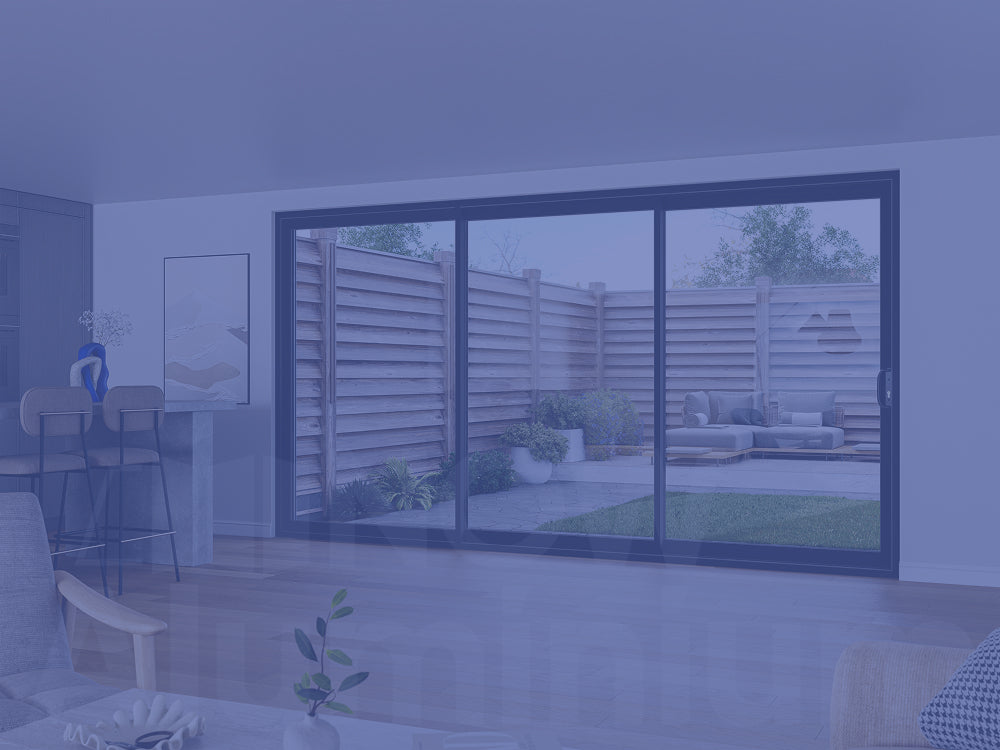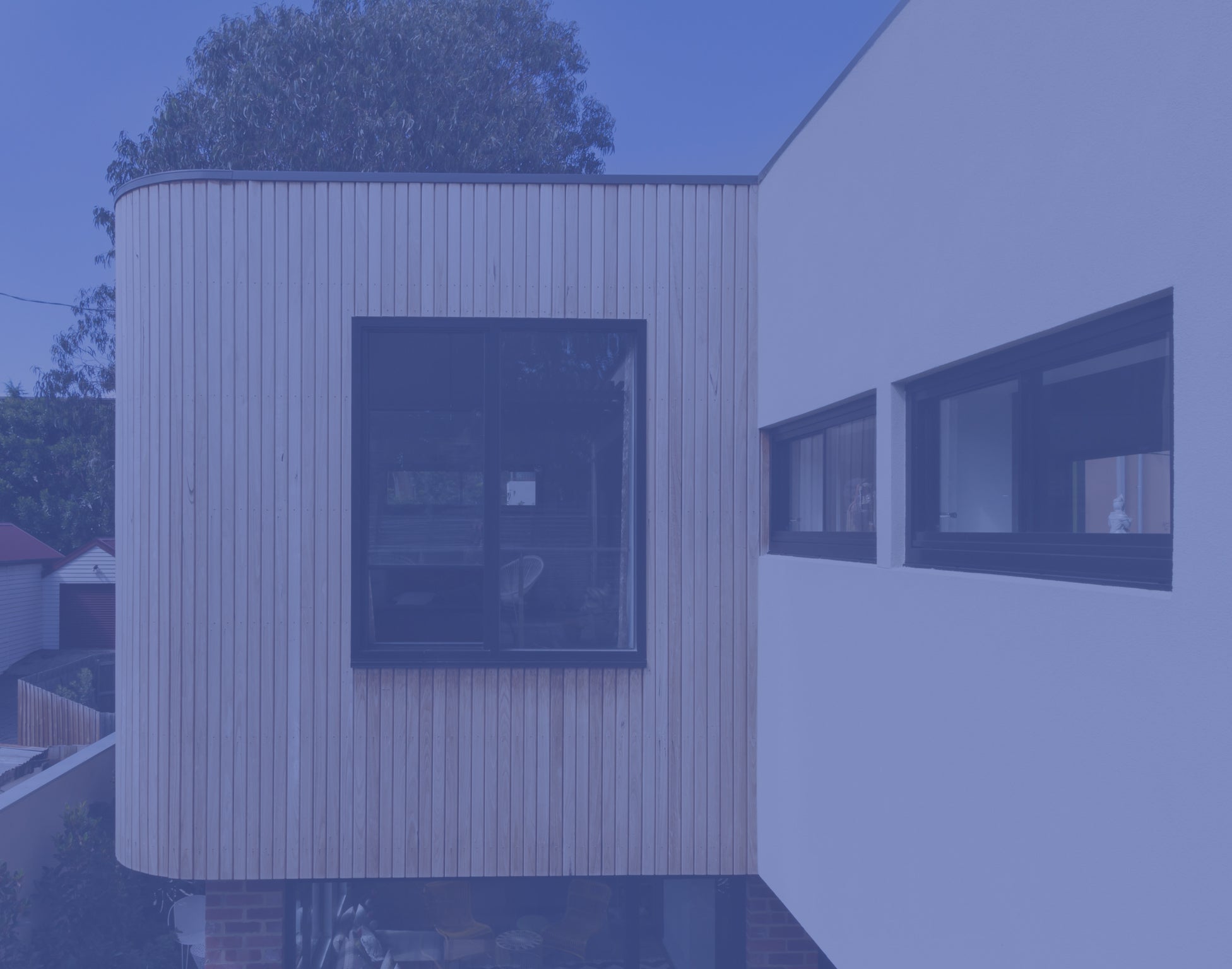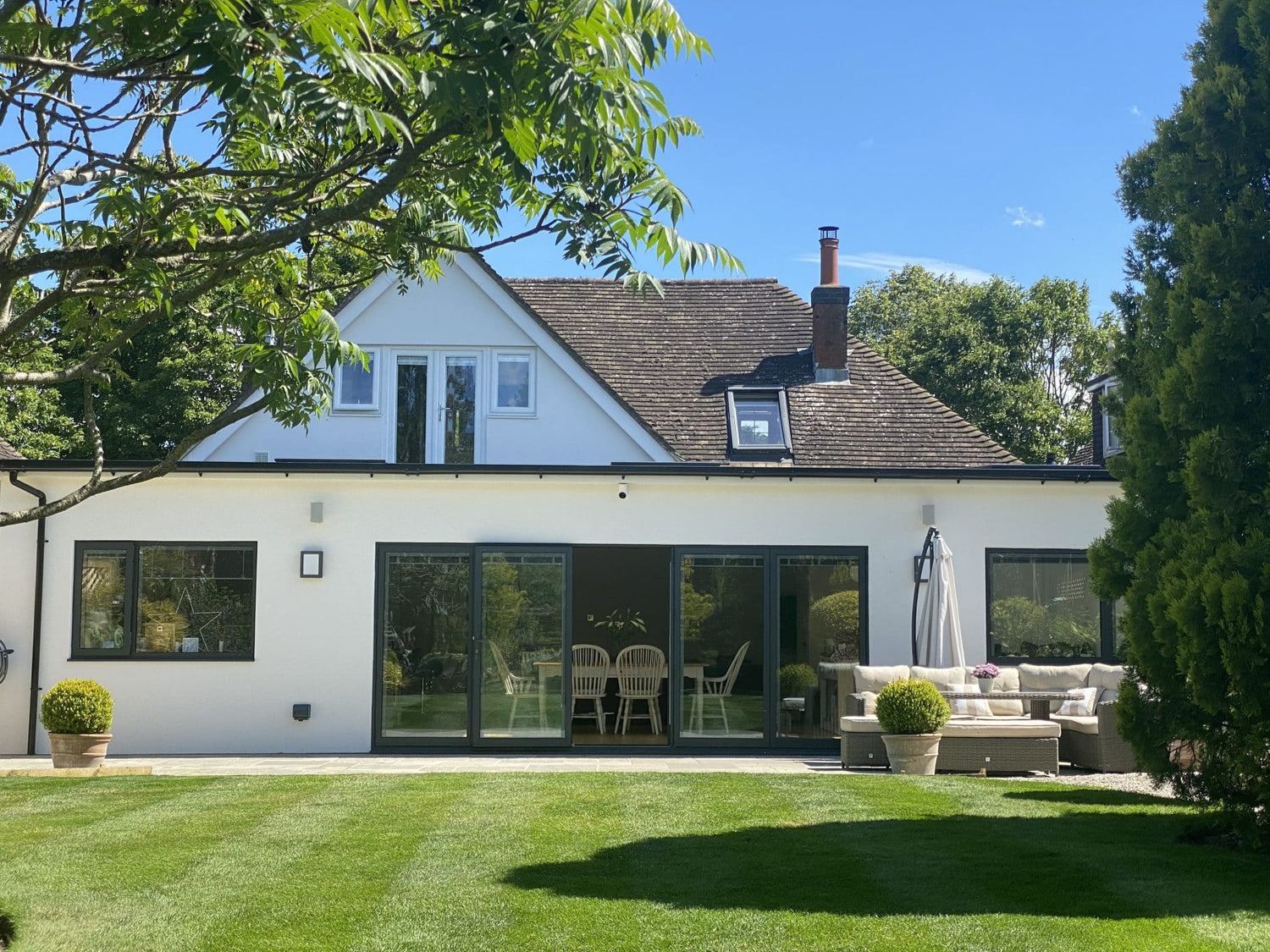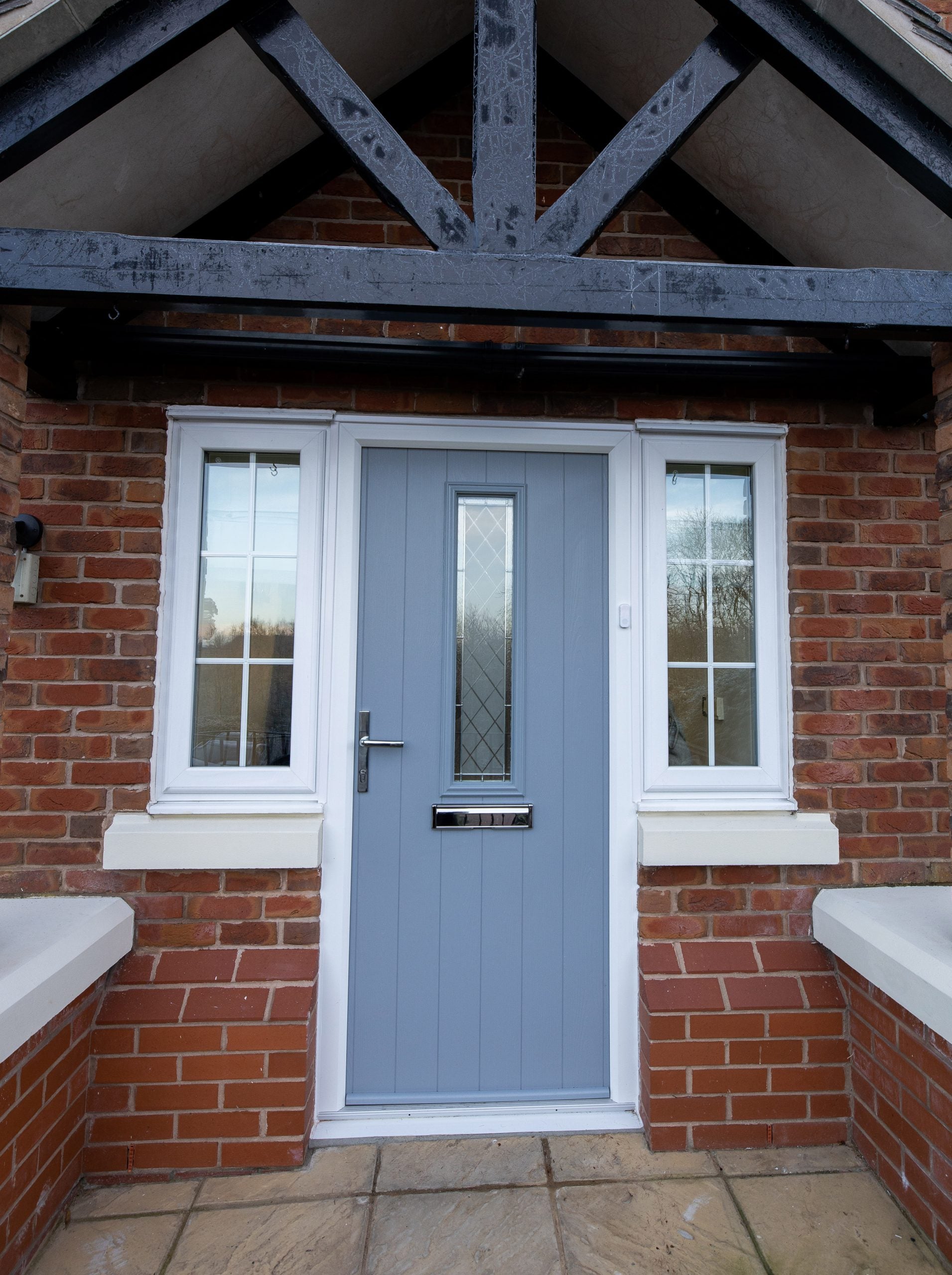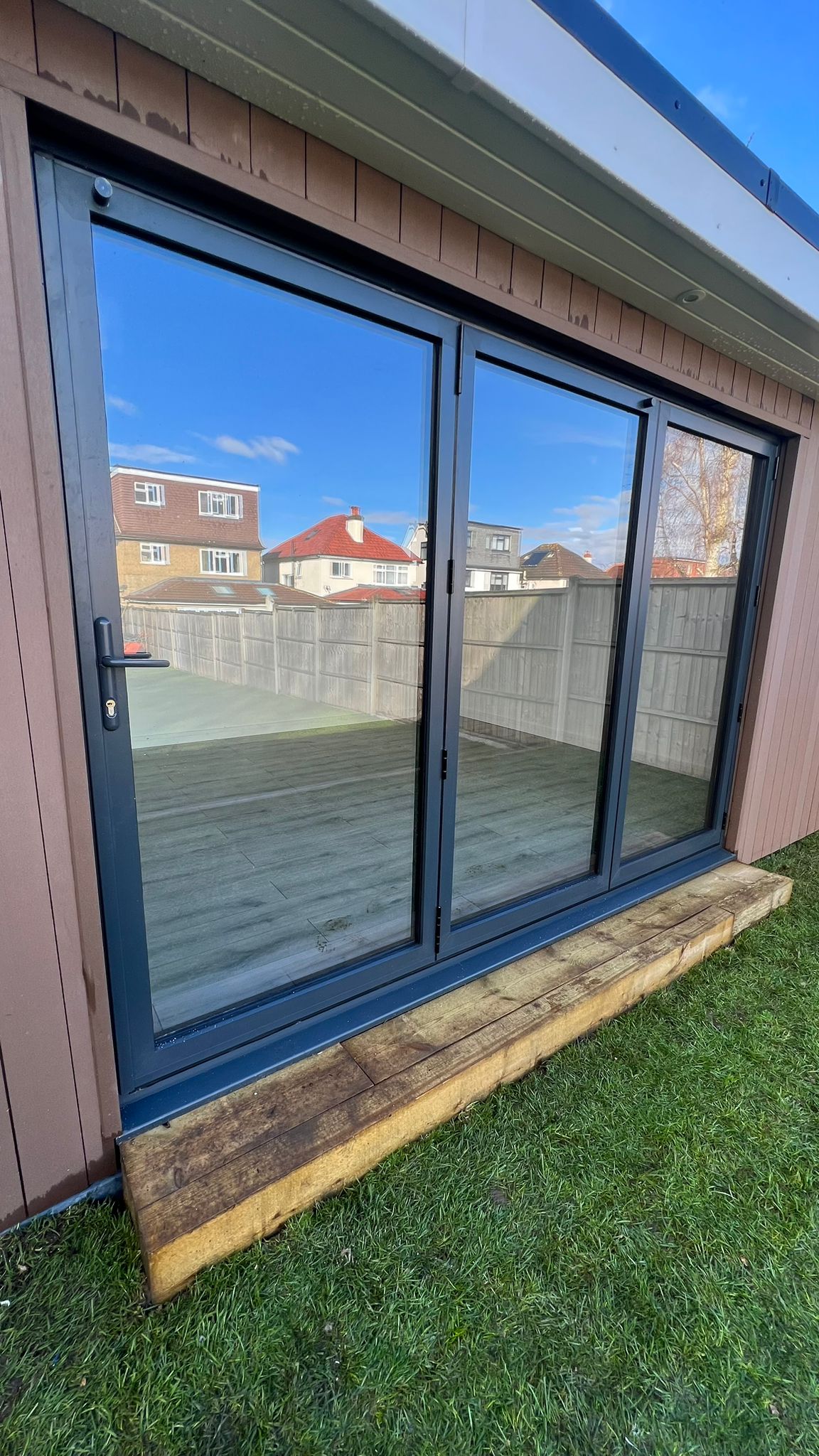Bifold and sliding doors have grown in popularity in modern homes because they provide a seamless connection between indoor and outdoor spaces while maximising natural light.
Understanding the differences between these two types of doors is critical for making an informed decision that fits your lifestyle and aesthetic preferences.
We will look at the qualities, benefits, and considerations of bifold and sliding doors in this article to help you choose the best option for your home.
Bifold Doors: Expanding Living Spaces
Bifold doors, also known as folding-sliding doors, are designed to slide open, with multiple panels neatly concertinaing together to create a wide opening.
Bifold doors have the flexibility to open inwards or outwards, catering to various spatial requirements and homeowner preferences.
What are the advantages of bifold doors?
There are multiple benefits to bifold doors, including:
- Seamless Transition: One of the standout advantages of bifold doors is their ability to completely open up an entire wall. This creates an almost seamless transition between the interior and exterior spaces, making it feel like your living area has expanded. This is especially beneficial during social gatherings or events where you want to merge indoor and outdoor spaces.
- Natural Light: Bifold doors, with their expansive glass panels, act as a conduit for natural light. This can transform a previously dim room into a bright and welcoming space, reducing the need for artificial lighting during the day and thereby saving on energy costs.
- Versatility in Access: Bifold doors offer unparalleled versatility. You can choose to open just one panel for quick access or multiple panels to enlarge the opening. This adaptability ensures that you can modify the space according to different occasions or needs.
- Increased Home Value: Installing bifold doors can significantly enhance the aesthetic appeal and functionality of a home. This modern addition not only elevates the overall design but also attracts potential buyers who value contemporary features. As a result, homes with bifold doors often see a boost in their market value.
- Low Threshold: Another advantage of bifold doors is the option for a low or even flush threshold. This means there’s minimal obstruction when moving between spaces. This design aspect is not only elegant but also reduces trip hazards and makes it more accessible for those with mobility issues.
What are the disadvantages of bifold doors?
- Partial View: When not fully opened, the frames of bifold doors can slightly obstruct the view. This means that unless they’re fully retracted, you might not get a completely clear sightline to your outdoor space.
- Maintenance: With multiple moving parts, bifold doors might require more regular checks and maintenance. The tracks, in particular, need to be kept free of debris to ensure smooth operation. So frequent cleaning is a must!
- Space Requirement: Even though they can fold compactly, bifold doors still require some space for the panels to fold, either inwards or outwards. This can be a consideration in spaces where every inch counts.
Sliding Doors: Aesthetic Appeal and Space Efficiency
Sliding doors operate by moving panels horizontally, with each pane fitting behind one another. They can create a near-complete open wall, offering a modern aesthetic that blurs the boundaries between indoor and outdoor living.
What are the advantages of sliding doors?
- Space Efficiency: Sliding doors are ideal for spaces where the outward or inward swing of doors is impractical. Since they slide within their own tracks, they don’t require additional space to operate, making them perfect for compact areas.
- Uninterrupted View: One of the major selling points of sliding doors is the vast expanse of solid glass they offer. Even when closed, homeowners can enjoy an almost uninterrupted view of their gardens, patios, or the surrounding landscape, making the indoors feel more connected to the outside.
- Thermal Performance: The design of sliding doors, with fewer frames and seals, often provides superior thermal performance. This means they can effectively reduce heat transfer, keeping homes warm in the winter and cooler in the summer.
- Lightweight Aluminium: Sliding doors made from lightweight aluminium are not only strong and durable but also incredibly easy to operate. The aluminium’s lightweight property ensures that even large doors glide smoothly on their tracks, making them user-friendly and reducing the effort needed to open or close them.
- Slim Sight-lines: Sliding doors designed with slim sight-lines offer an elegant, contemporary aesthetic. These minimalistic frames maximise the glass area, further enhancing the uninterrupted view and allowing more natural light to flood into the room. It’s an optimal balance between structural support and visual appeal.
- Better for Limited Space: Beyond their space-efficient sliding mechanism, sliding doors themselves have a slim profile, which makes them ideal for homes with limited space. They can be installed in tight areas where traditional doors or bulkier alternatives might be impractical, ensuring that every inch of a room is utilised efficiently.
What are the disadvantages of sliding doors?
- Limited Opening: Unlike bifold doors that can open up almost the entire wall, sliding doors can only open as wide as the sliding panel allows. This means that, at any given time, part of the doorway will always be obstructed by the stationary panel.
- Maintenance: The tracks of sliding doors can accumulate dirt and debris over time. If not cleaned regularly, this can hinder their smooth operation and even cause damage to the rollers.
- Less Convenient for Quick Access: Compared to a bifold door with a traffic door, sliding doors may be less convenient for quick in-and-out access. With sliding doors, one typically has to slide the entire panel to create an opening, which can be less efficient than simply opening a single door panel.
- Cost Considerations: Depending on the specific system and materials used, sliding doors can be more expensive than their bifold counterparts. Homeowners should weigh the aesthetic and functional benefits against the potential higher costs.
-
Track Design Limitations: While modern sliding doors have come a long way in terms of design, achieving a completely flush track can be challenging due to the space required for the roller mechanism. However, it’s worth noting that the track can often be sunk into the floor to reduce its visibility and create a more seamless appearance.

View:
Sliding doors offer a more unhindered view due to their large expanses of glass. On the other hand, bifold doors provide a complete view only when fully opened, although they still allow for an unobstructed view through the glass panels even when partially folded.
Access:
Bifold doors are versatile in terms of access. There are many more opening configuration options for bifolds than sliding doors allowing you to suit it best to your opening. This makes them particularly suited for wheelchair users, ensuring ease of movement and accessibility.
Thermal Performance:
As sliding doors have fewer frames, they may provide better thermal performance by reducing heat transfer. However, with advancements in technology, both bifold and sliding doors can now be equipped with energy-efficient glazing options, ensuring insulation and reducing heat loss.
Installation Cost:
While costs can vary based on factors such as size, material, and configuration, it is generally observed that sliding doors can be more expensive than bifold doors. However, the long-term benefits and aesthetic value they bring to your home can outweigh the initial cost.
Security and Installation: Ensuring Safety and Efficiency
Security
For many homeowners, the security of their property and loved ones is a top priority. When considering bifold or sliding doors, it’s essential to understand the security features they offer:
- Locking Mechanisms: Both bifold and sliding doors should come equipped with high-quality locking systems. Multi-point locks, which secure the door at several points along the frame, are particularly effective in deterring potential intruders. Ensure that the locks are tamper-resistant and made of robust materials like steel or hardened aluminium.
- Reinforced Frames: A door’s frame plays a significant role in its overall security. Opt for doors with reinforced frames, which can withstand attempts at forced entry. Some frames are even designed with internal steel cores for added strength.
- Laminated or Toughened Glass: The glass panels in these doors can be a potential vulnerability. Laminated or toughened glass is harder to break, providing an additional layer of security. Laminated glass, in particular, holds together when shattered, preventing easy access.
Installation
The way a door is installed can significantly impact its performance, durability, and security:
- Professional Installation: Always opt for a professional team to handle the installation of your bifold or sliding doors. They’ll have the expertise to address any challenges specific to your home, ensuring that the doors fit perfectly and operate smoothly.
- Duration: While the installation process’s length can vary based on the door’s size, design, and your home’s specific requirements, most installations are completed within a day. However, it’s essential to allow for adequate time to ensure the job is done right.
- Post-Installation Checks: Once the doors are installed, it’s a good practice to test their functionality. Check the ease of operation, ensure the locks engage securely, and inspect the seals for any gaps that might compromise insulation.
Glazing
The type of glazing you choose for your doors can have a profound impact on your home’s energy efficiency and comfort:
- Double or Triple Glazing: These glazing options consist of two or three glass panes with a gap in between, usually filled with an inert gas like argon. This design significantly reduces heat transfer, helping maintain a consistent temperature inside your home, regardless of the weather outside.
- Noise Reduction: If your home is situated in a noisy area, such as near a busy road or airport, double or triple glazing can help reduce noise transmission, ensuring a quieter and more peaceful indoor environment.
- Energy Efficiency: Proper glazing can lead to substantial energy savings. By reducing the need for heating in the winter and cooling in the summer, you can cut down on energy bills and reduce your carbon footprint.
When in the market for bifold or sliding doors, it’s essential to consider not just their aesthetic appeal but also their security features, the quality of installation, and the benefits of appropriate glazing. Making an informed decision will ensure that you invest in doors that are not only beautiful but also safe, durable, and energy-efficient.
Design and Material Considerations: Choosing the Right Fit
The choice of material for door frames significantly impacts the overall aesthetic and performance of both bifold and sliding doors. Aluminium, with its modern and sleek appearance, is a popular choice due to its strength, durability, and low maintenance requirements. Additionally, aluminium frames can be powder-coated in a wide variety of colours to match your desired style.
Different configurations and features are available for both types of doors, allowing you to personalise your selection based on your specific needs. From standard configurations to cornerless designs and those with integrated blinds, you have the flexibility to find the perfect fit for your home.
Additional Considerations: Tailoring Your Doors to Your Space

If achieving a level threshold between the inside and outside of your home is a priority, bifold doors are a great option. They can be designed to allow for a seamless transition between spaces, creating a smooth and uninterrupted flow.
For rooms with unusual shapes or dimensions, sliding doors can be customised to fit your requirements, ensuring that you don’t compromise on aesthetics or functionality.
At Now Aluminium, we offer high-quality aluminium bifold doors that combine superior functionality, durability, and aesthetics. Explore our wide range of options and elevate your living spaces with our reliable and visually stunning solutions.
Choose Now Aluminium for your bifold door needs and enjoy the benefits of our superior craftsmanship and exceptional service – contact us today to find out more.



